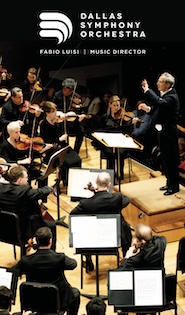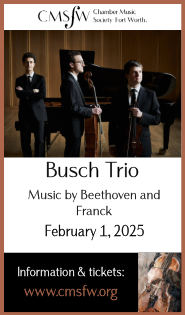Macelaru shows capable hand with DSO in Romantic program
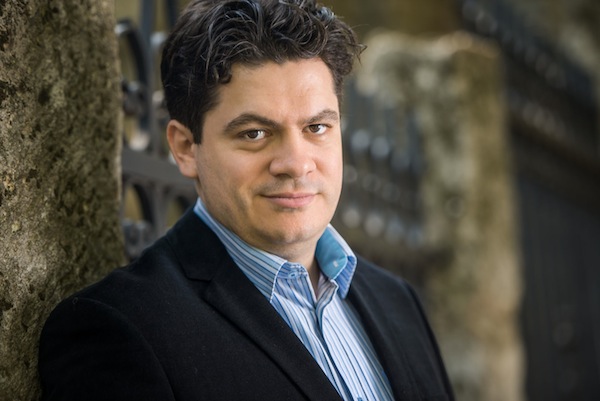
Cristian Macelaru conducted the Dallas Symphony Orchestra Thursday night at Meyerson Symphony Center. Photo: Sorin Popa
Cristian Macelaru joined the Dallas Symphony Orchestra for a concert devoted to twentieth-century Romanticism Thursday night at Meyerson Symphony Center.
Although the Romanian-born guest conductor’s chosen repertoire was limited to one particular style, he nevertheless made a strong bid for the soon-to-be vacant post of music director. Macelaru’s ties to Texas include past service in the violin section of the Houston Symphony and graduate study in conducting at Rice University.
Dallas-based organist Bradley Hunter Welch joined Macelaru and the DSOI to open the program with Samuel Barber’s Toccata Festiva for Organ and Orchestra. The work itself, with a grandly noisy introduction followed by one of Barber’s most appealingly lyrical tunes, is a perfect curtain-raiser for a hall with a great organ.
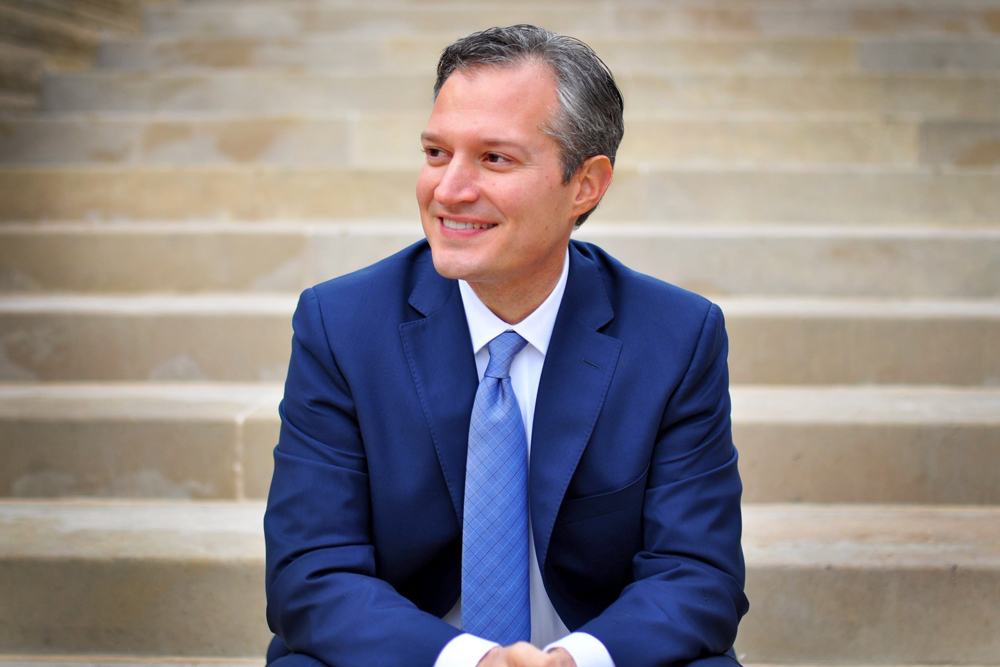
Bradley Hunter Welch
The Barber performance handsomely served as a showpiece for the hall’s organ and the soloist, as well as the conductor and orchestra. Welch demonstrated his own technical expertise with perfect execution throughout, particularly in the unmetered cadenza for pedals; likewise, he showed absolute command of the sonic possibilities of the hall’s grand organ. For his part, conductor Macelaru ably guided the orchestra through the constant changes of mood and meter with which the orchestra responds to the organ solo.
After this tidbit from America’s greatest neo-romantic composer, Macelaru and orchestra turned their attention to two major works from Sergei Rachmaninoff, the composer who can still be viewed as the leading representative of the romantic style.
Once upon a time, Rachmaninoff’s Second Piano Concerto was the most frequently performed of that composer’s symphonic works; while it has been replaced in the spotlight by his Piano Concerto No. 3 and the Rhapsody on a Theme of Paganini, it retains an aura of overfamiliarity that can challenge both conductor and pianist.
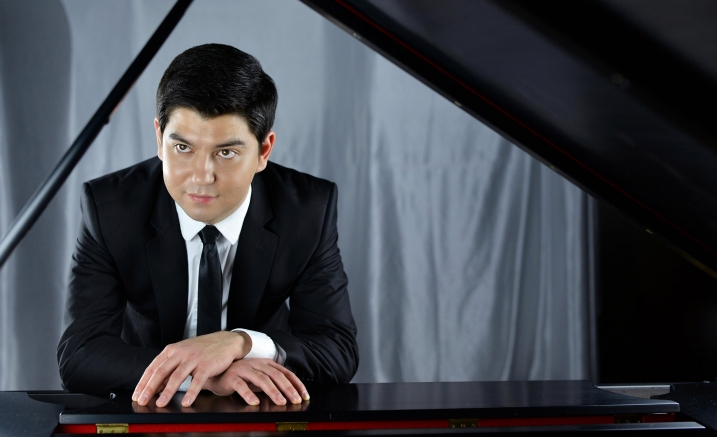
Behzod Abduraimov,
In this case, Behzod Abduraimov, 27, who previously appeared in a recital in Fort Worth in November 2016, performed the solo part with steady musicality and insight throughout.
Indeed, this very famous concerto proved an excellent vehicle for the Uzbeki-born pianist’s range, including a powerful, resonant strength in the march-like passages of the first movement and that final coda, song-like phrasing in the lyrical passages, and sturdy tempo in the opening section of the technically challenging finale. For this listener, however, the most impressive of many striking moments arrived in the sparkling, angelic coda of the first movement.
Throughout the concerto, conductor Macelaru proved an ideal collaborator here, underlining the interaction of piano and orchestra with beautifully shaped phrases. In another memorable moment, Macelaru, Abduraimov and principals in the orchestra created a delightful sense of chamber music in the lyrical middle movement.
Abduraimov, whose chilly stage presence has improved considerably since his Fort Worth recital, performed the gentle folk-like F minor movement from Schubert’s Moments Musicaux for an encore, providing the one detour from the twentieth century in the evening’s agenda.
Rachmaninoff produced his three-movement Symphonic Dances in 1940, almost four decades after the Piano Concerto No. 2. The composer had experienced, in the intervening years, revolution and exile, and, during the same period, had listened to Stravinsky and other emerging modernists. Irony, pungent colors, and structural precision absent from the earlier concerto are here evident.
While Macelaru yielded to the temptation to throw out full force at the first fortissimo, just eight measures in, he deftly handled the work’s broad, sometimes mercurial mood swings—particularly in that manic waltz movement—and continued his insightful shaping of phrases. Strings and winds responded nicely, though the brass had a few rough moments.
On the whole, Macelaru showed a strong command of a significant but limited segment of the orchestral repertoire, leaving unanswered the question of how he would fare with this orchestra in the equally essential Baroque, Classical-era, and high romantic repertoire—or, for that matter, in mainstream modernist and contemporary works.
The program will be repeated at 7:30 p.m. Friday and Saturday. mydso.com; 214-692-0203.
